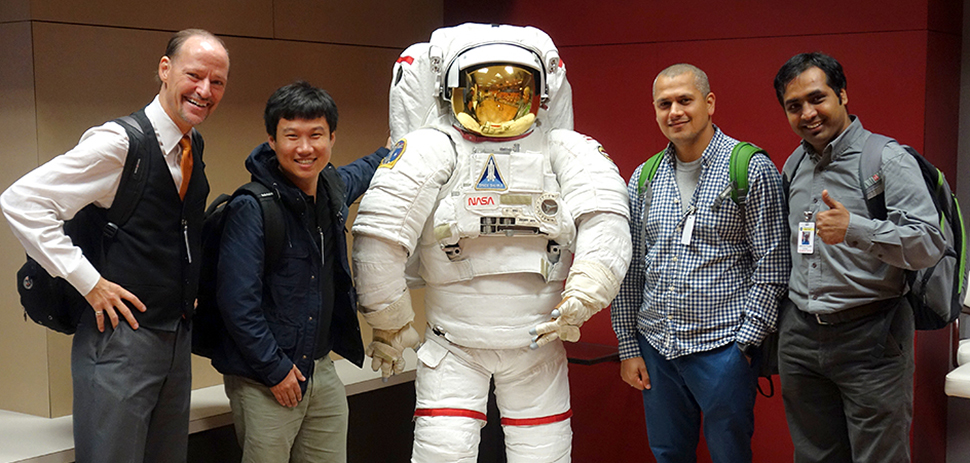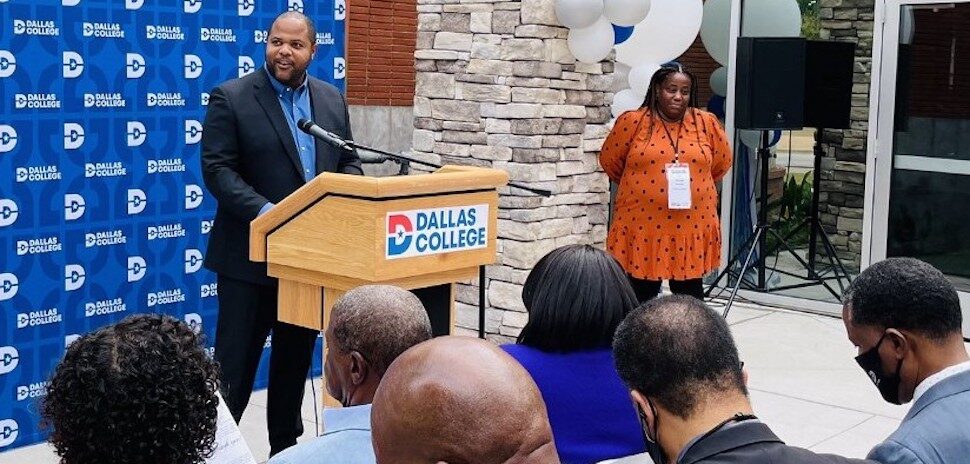Researchers at the University of Texas at Dallas have taken a giant step in making audio recordings of the U.S. Apollo lunar missions available for all mankind in a five-year project that overcame many technical challenges.
In 2012, researchers at the Center for Robust Speech Systems in the Erik Jonsson School of Engineering and Computer Sciences received a grant from the National Science Foundation to create speech processing techniques to reconstruct and transform the audio recordings made of communications between astronauts, mission control, and support staff.
The team’s solution required deciphering communication with garbled speech, technical interference, and overlapping audio loops, according to UTD.
“CRSS has made significant advancements in machine learning and knowledge extraction to assess human interaction for one of the most challenging engineering tasks in the history of mankind.”
John H.L. Hansen
It would be like Apple’s Siri trying to transcribe discussions with random interruptions including up to 35 people in varied locations, often speaking with regional Texas accents, UTD said.
The Apollo program was the third of the nation’s space initiatives and ran from 1963 to 1972.
Its goal was to land humans on the moon, with six of the missions actually achieving lunar landings — led by Apollo 11’s historic moon landing on July 20, 1969, with astronauts Neil Armstrong and Buzz Aldrin being the first humans to step foot on lunar soil.
NASA recorded all the communications on the missions on more than 200 14-hour analog tapes that have 30 tracks of audio each, UTD said.
The UTD project is led by CRSS founder and director John H.L. Hansen and research scientist Abhijeet Sangwan. Their team included doctoral students who worked to establish solutions to digitize and organize the audio.
APOLLO TAPE PROJECT LEADS TO SIGNIFICANT ADVANCEMENTS
They also developed algorithms to process, recognize, and analyze the audio to determine who said what and when.
“CRSS has made significant advancements in machine learning and knowledge extraction to assess human interaction for one of the most challenging engineering tasks in the history of mankind,” Hansen said in the release.
The team describes those algorithms and the breadth of their project in the November issue of IEEE/ACM Transactions on Audio, Speech, and Language Processing. The audio recordings are available on the Explore Apollo website here.
![]()
Get on the list.
Sign up to keep your eye on what’s new and next in Dallas-Fort Worth, every day.
And, you’ll be the first to get the digital edition of our new Dallas Innovates magazine:
The annual edition publishes in January






























